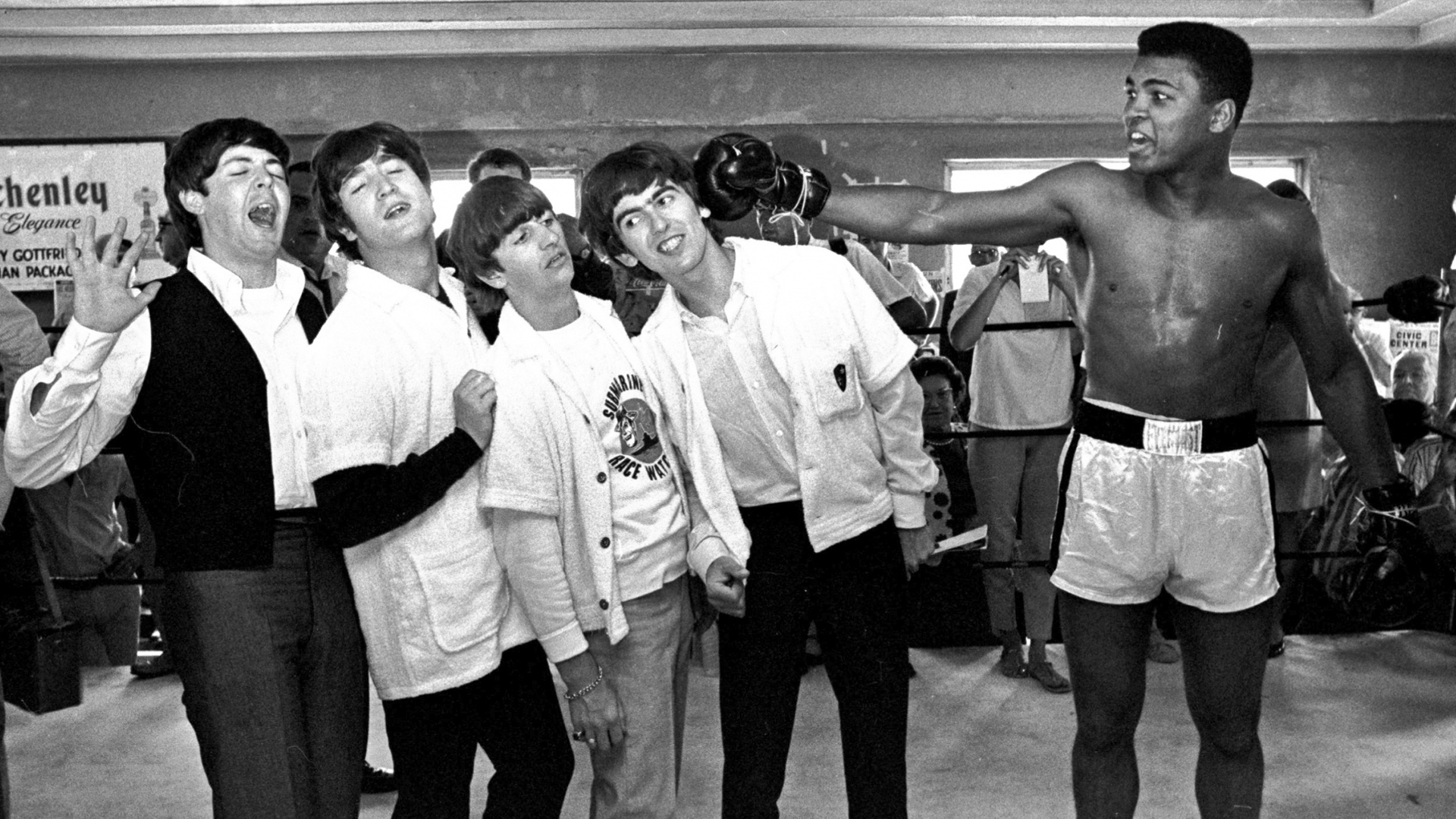1964
It was the year the Beatles came to America, Cassius Clay became Muhammad Ali, and three civil rights workers were murdered in Mississippi. It was the year when Berkeley students rose up in protest, African Americans fought back against injustice in Harlem, and Barry Goldwater’s conservative revolution took over the Republican Party. In myriad ways, 1964 was the year when Americans faced choices: between the liberalism of Lyndon Johnson or Barry Goldwater’s grassroots conservatism, between support or opposition to the civil rights movement, between an embrace of the emerging counterculture or a defense of traditional values.
As champagne popped on December 31, 1963, America’s optimism was tinged with a deep anxiety. Just five weeks earlier, President John F. Kennedy had been assassinated, leaving Americans shaken and vulnerable. Eight days into the new year, the new President, Lyndon B. Johnson, gave his first State of the Union address, demanding an end to racial injustice and an “unconditional war on poverty in America.” Only a few days earlier, Arizona Senator Barry Goldwater had announced his intention to seek the Republican nomination for president, igniting a conservative movement that would reshape the politics of 1964 and transform the American political landscape for generations to come.
Based in part on The Last Innocent Year: America in 1964 by Jon Margolis, 1964 follows some of the most influential figures of the time – Lyndon Johnson, Barry Goldwater, Betty Friedan – but also brings out from the shadows the stories of ordinary Americans whose principled stands would set the country onto a new and different course.
![]()
As champagne popped on December 31, 1963, America’s optimism was tinged with a deep anxiety. Just five weeks earlier, President John F. Kennedy had been assassinated, leaving Americans shaken and vulnerable. Eight days into the new year, the new President, Lyndon B. Johnson, gave his first State of the Union address, demanding an end to racial injustice and an “unconditional war on poverty in America.” Only a few days earlier, Arizona Senator Barry Goldwater had announced his intention to seek the Republican nomination for president, igniting a conservative movement that would reshape the politics of 1964 and transform the American political landscape for generations to come.
Based in part on The Last Innocent Year: America in 1964 by Jon Margolis, 1964 follows some of the most influential figures of the time – Lyndon Johnson, Barry Goldwater, Betty Friedan – but also brings out from the shadows the stories of ordinary Americans whose principled stands would set the country onto a new and different course.


